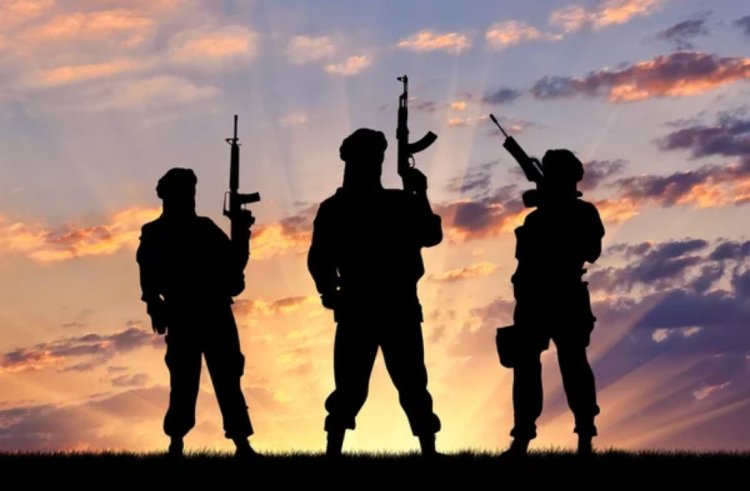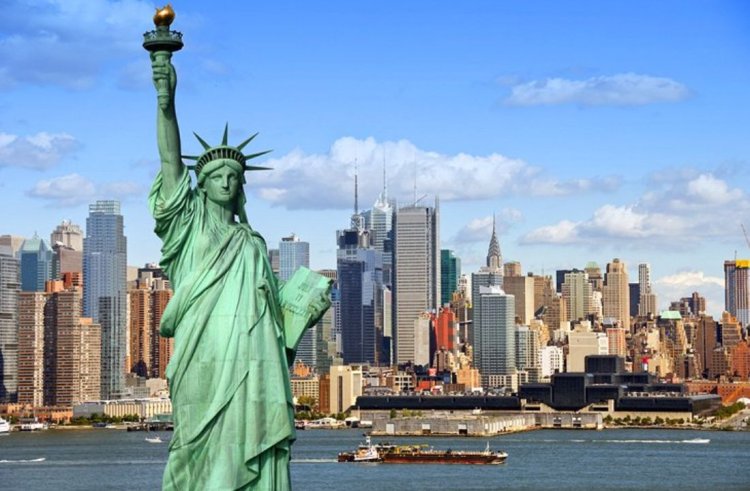The world we live in after 9/11
The world we live in after 9/11
Updated on August 27, 2022 16:51 PM by Anna P
Next month it will be more than two decades since the 9/11 attack. On that fateful day, 19 terrorists held four civilian planes captive; two planes flew in World Trade Centres in New York; Pentagon was struck with a third and the fourth in a Pennsylvania field. The passengers of the fourth plane didn't let the terrorists reach their desired target, usually thought to be the President's House or any other important government building in Washington, DC.

All 19 hijackers were from the Middle East, and 15 were from Saudi Arabia. They were trained in Afghanistan and US flight schools. The operation was planned, organized, and executed by Al-Qaeda – a terrorist group whose head was Osama bin Laden. By the day ended, almost 3000 people had been killed, and over 6,000 were injured. Most of these were Americans, but other countries' citizens also lost their lives.
Also Read: Countries with the most powerful militaries in the world
US allies faced so many terrorist attacks, but none of them were like 9/11. So it is important to ask, apart from the immediate costs, what difference does this attack make? How has history changed after that?
TERRORISM

There are plenty of explanations why terrorists couldn't any more such attacks. As the US invaded Afghanistan, the terrorist group Al-Qaeda lost its hold. Almost all governments worldwide have introduced stricter screening procedures, making it harder for terrorists to get hold of airports and airplanes. There is a dramatic increase in the countries' intelligence, military, and police capabilities deployed to lower the risks and counter the threats. Countries are now more cooperative with other countries; counterterrorism has become one of the rare spheres where governments that usually disagree are more than willing to work with one another.
Also Read: Two Decades Later, the Enduring Legacy of 9/11
There is now a broader agreement on what is included in terrorism – individuals and groups using arms against civilians for their political advantage – and support for the attitude that governments need not differentiate between terrorists and those who give them support and protection. Gone are those days when groups and individuals killed for their cause were magnified as freedom fighters.
However, tens of thousands of people still lose their lives to terrorism every year. Most of those attacks happened in the Middle East, Africa, and South Asia under ongoing conflicts. The countries where these attacks took place are Iraq, Afghanistan, Syria, Libya, Nigeria, Somalia, Yemen, and Pakistan, contrary to an isolated 9/11-type attack targeting one of the superpowers. Terrorism is increasingly becoming decentralized and localized. It is resilient as well – killing or capturing the head of any terrorist organization doesn't essentially means its end. For example, Al-Qaeda survived the killing of its head, bin Laden. The US special forces killed bin Laden in Pakistan.
Also Read: Top 10 Most Followed Celebrities on Twitter
Therefore, it is no surprise that terrorism is still alive without any end seen n the coming future. Even the possibility of another 9/11 cannot be ruled out, although the US government stated last year that the more imperative terrorism threat it faces is domestic. The Provisional Irish Republican Army stated that when it failed to assassinate the then British Prime Minister Margaret Thatcher in 1984, they were unlucky on that day. Still, they need to be lucky only once.
The real looming danger is for the day when terrorists will lay their hands on a nuclear material or learn to prepare a biological or chemical weapon; in that case, a new type of terrorism will emerge that will define the age. Thankfully, it hasn't happened yet.
Add Block
The United States of America

9/11 marked a turning point in American history. It had a significant impact on the US foreign policy that followed. Though these attacks weren't the beginning point of global terrorism, they started the so-called Global War on Terrorism. This majority affected whatever the US did throughout the world, how the world saw the US and what Americans thought about their foreign policy.
The saga's starting point was Afghanistan. Afghanistan was under the control of the Taliban at that time. Immediately after 9/11, the government of the USA gave them two choices – either they should hand over those who were behind the 9/11 attack and living in their country, or they put their own rule at risk. The Taliban refused to hand over any of the Al-Qaeda chiefs. So, the US military and intelligence joined hands with a loose group of afghan tribes called the Northern Alliance to end the Taliban rule. The US helped establish a successor government that ruled over most of Afghanistan.
Also Read: These movie endings that spoiled your mood
The government's rule, though, was never unanimous or unchallenged. Many Taliban and Al-Qaeda loyalists escaped to Pakistan, and there, they eventually rebuilt their lost strength and again started military operations against the Afghan government, which overthrew them. Considering US' role, it didn't do sufficient for Afghanistan to build its military, lower the rate of corruption, or prevent the Taliban from a haven in Pakistan. Rather, the US raised its presence and military operations in the country, becoming a government's partner in the civil war.
At its peak, the US had deployed more than 100,000 soldiers in Afghanistan. During its over twenty years of operation in Afghanistan, the US spent over $2 trillion. 2300+ Americans and millions of Afghanis lost their lives during those years. The effort was too much and not sufficient at the same time. The US presence didn't allow Afghanistan its legitimacy and gave birth to the opposition in the US. It was seen that the Taliban had more say in the decision-making than US. by the year 2020, the US had lost its will to carry on the fight, which only led to an open-ended statement.
Also Read: Securing our Future: A Decade of Counter-terrorism Strategies
Under its Global War on Terrorism, the US also waged war on another Middle East country, i.e., Iraq. Whether US President George W. Bush would have launched a war had 9/11 never happened still needs an answer. Surely, the attacks helped Bush to show the world that America was not, what former President Richard Nixon said about the US during the Vietnam war, a "pitiful, helpless giant." It was thought that Iraqi leader Saddam Hussein possessed weapons of mass destruction, but it was incorrect. Some Americans wanted to spread democracy in Iraq and from there to the whole of the Middle East. They assumed that in this way, the region is less expected to support terrorism and produce terrorism.
Also Read: How much people are willing to spend on their hobbies?
The Iraq war was initiated in March 2003, but it was not what the US government, many Congressmen (including now US President Joe Biden), and whoever supported it thought it to be. The US wasn't ready for what was awaiting them. Military victories in the initial stages removed the government but soon resulted in violent mayhem and civil war. Decisions to eliminate Iraqi military forces and deny government jobs to all those who were associated with Saddam Hussein's regime made the already bad situation even worse. Just like Afghanistan, even Iraq showed the limits of what the military could achieve at an affordable cost and in a specific time frame.
Ultimately, the US had to increase its military forces to almost 170,000 troops to continue the embattled successor government. Somewhat stability was achieved but at a massive cost. The money the US spent in Iraq was the same as in Afghanistan, but the human cost was much higher – over 4000 American soldiers were killed, a much higher number were wounded, and the suicide rate among US troops increased. And this doesn't include Iraqi casualties and private contractors. Their estimate varies widely, but it was several hundred thousand.
The Iraqi war weakened the US in other ways as well. No evidence was found that Iraq was involved in 9/11; the US' image suffered a further blow when it explained why it launched a war without the support of the UN – to eliminate weapons of mass destruction, which had no basis in reality. When images of US soldiers mistreating Iraqi prisoners came out, it further deteriorated its image. Iraq's civil war also meant that Iran became the most powerful country in that region.
Also Read: An inspiring weight loss journey of a couple
THE WORLD

These wars had domestic consequences for the US too. The wars shook the US confidence, a country that came out of the cold war with a history of the unseen preponderance of power and broke its national unity. Furthermore, their failures and costs triggered opposition to a constant, huge US global role that gave birth to a new inclination towards isolationism. In the same way, the push for force combined with the global crisis of 2007 to 2009 and its economic crisis shattered Americans' faith in elites. This gave rise to the populist sentiment, which also helped win Donald Trump's elections. The US today is more divided than ever before. It is no longer inclined to carry out the type of active foreign policy that has been its trait since the end of World War II that proved beneficial to Americans and many others.
Also Read: Shocking facts about Skylab Crash that blow your mind !
Looking back, we can conclude that 9/11 was the indicator of what lay ahead – more the terrors of globalization rather than the globalization of terrorism. The attacks showed that borders and distance mean little in today's global age. Almost nothing stays local for long now, whether you talk about terrorism that emerged from the Middle East or the impact of the final global crisis born in America. People all over the globe suffered the consequences of a virus that emerged from Central China. The fires, storms, floods, droughts, and heat ravaging the world today result from climate change, the combined impact of human activity, which has collected unsustainable amounts of heat-trapping gases into our atmosphere.
The era stimulated by events in Afghanistan has completed two decades. As quickly as the Taliban was overthrown back then, they gained power in the same way in recent years.





